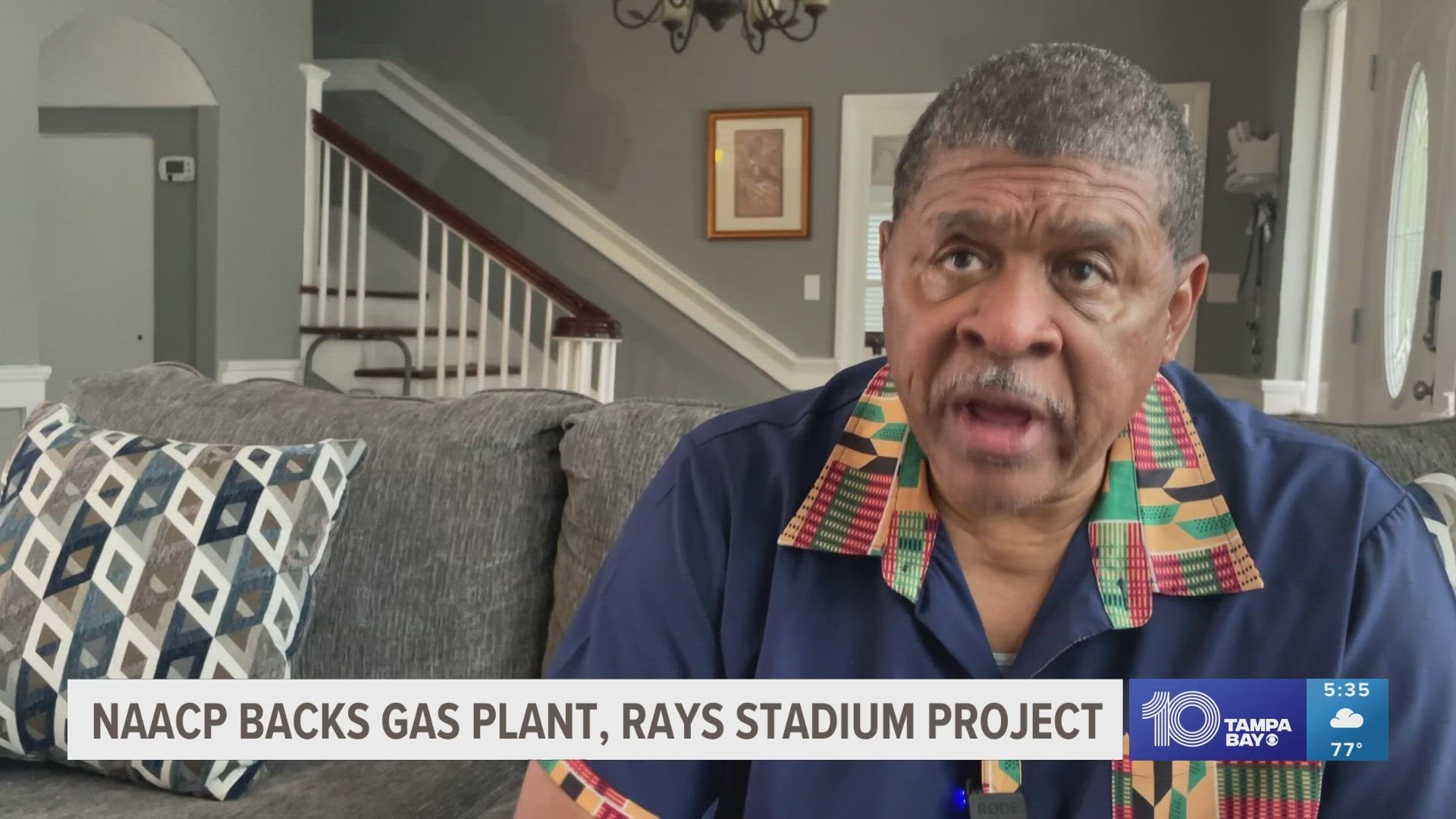ST. PETERSBURG, Fla. — As city council members are expected to begin discussion in the coming weeks, the St. Petersburg NAACP chapter is endorsing a multi-billion-dollar redevelopment project proposal, which includes a new stadium for the Tampa Bay Rays.
In a memo released Wednesday, St Petersburg NAACP President Esther Matthews announced the organization's “resolute support” for the Rays/Hines Historic Gas Plant Development Project, saying the chapter’s executive committee voted unanimously to endorse the project, which would use hundreds of millions of dollars in public funding to get done.
“[The project is more than just an infrastructure endeavor, it’s a beacon of hope for economic revitalization and social justice,” Matthews said. “The project embodies our commitment to securing the economic sustainability of our community by ensuring African American businesses and the wider community benefit significantly from this development.”
Welch posted the NAACP letter on his Facebook page saying “I could not be more pleased to hear that NAACP Saint Petersburg Branch No.5130 is in alignment with this project and the multi-generational economic development opportunities it presents.”
St. Pete Mayor Ken Welch is pushing for the project to be approved, saying it would be an economic driver for the community and it keeps promises made long ago, when the 86-acre Gas Plant District, home to a black community was razed to make room for Tropicana Field.
"This is what the community was promised. This is what business and civic leaders over decades have hoped for. And this is what we will accomplish,” Welch said while announcing the deal in September 2023.
Aside from a ballpark, the proposal includes building 1,200 affordable housing units and with the land-sale agreement, $50 million towards creating opportunities and jobs for minority-owned businesses.
In their support, the St. Petersburg NAACP says they will continue to champion the importance of community involvement and oversight, ensuring that the promises made are promises kept, and the project becomes a cornerstone of economic empowerment for the African American community in St. Petersburg for generations to come.
However, not all members of the community agree.
“This is flowery, visionary language. This is not nuts and bolts, there's no timing in here. There's no percentage of businesses for African Americans,” Bishop Manuel Sykes said while reading the NAACP memo.
Sykes, the leader of Bethel Community Church in St. Petersburg, has been a vocal opponent of the proposal since it was first announced. He calls the NAACP's endorsement disappointing.
“I don't believe it was representative. It says it is. But I don't believe it's representative of the poor, the powerless,” said Sykes, who once served as President of the St. Petersburg NAACP chapter.
Sykes was among a group of faith leaders who have protested the proposed agreement, saying it fails to address the housing crisis and that the proposed $600 million in public spending could be used for bigger needs.
He's hoping as talks heat up in city council, council members consider the cost.
"The first question is, would you have been elected if you had told your constituency that somehow out of the air, you're going to come up with $300 million to help rich boys build a sandbox?” Sykes asked.

